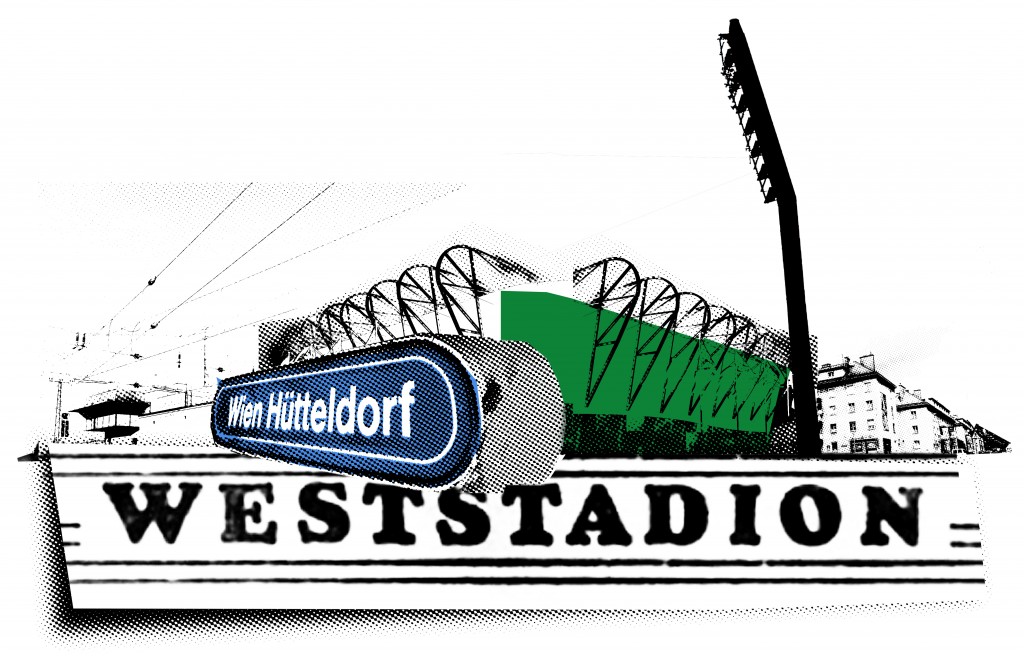In spring 2014, the decision was made to build a new stadium in Hütteldorf and it was met with great excitement. An infrastructural improvement, which has already been demanded for years, took detailed shape in the background and was presented to all members in the course of a presentation. With the new stadium, new opportunities and possibilities shall emerge at the same site of the club’s glorious past, which goes back over 100 years.
The west of Vienna has always been the home of the SCR. The fact that we are able to stay in Hütteldorf cannot be taken for granted, as it is quite unusual to build new stadiums in residential areas in Europe.
Some wishes of the fans have been taken into account to ensure that the new Weststadion can become our new home and will continue providing a stunning atmosphere. In spite of the substantial size, there will only be one stand, the Block West stand will not feature mid-level access points and it can be used as standing area. With the preservation of one floodlight mast as well as the naming of the stadium forecourt as the Gerhard-Hanappi-Platz (Gerhard-Hanappi-Square), there was a conscious attempt to connect this historically important place with the new, modern stadium.
On the other hand, the club management sends a clear signal with the incredible size and infrastructure of the VIP area that should not be underestimated. It bears the risk that sponsors could have a major influence on Rapid in the future. Experience shows that this is hardly compatible with our values. In addition, the insane level of surveillance and the feared rise in prices follow international trends that are not acceptable for the Sportklub Rapid, which has always demanded uniqueness.
It must be affordable for all social classes to watch a match of Rapid in the stadium. Furthermore, it must, also in the new Weststadion, continue to be possible to create the passionate and emotional atmosphere that Rapid is famous for.
In spite of the absolutely necessary and predictable upswing that the new stadium will bring along, we consider the forthcoming commercialization dangerous and want to counteract the ensuing loss of identity for the SK Rapid.
With regard to the Gerhard-Hanappi-Stadium, which was opened in 1977 as Weststadion, we would like to see a particular characteristic from this period, in which interests of companies and corporations were of less importance in football than today, carry over into the present day. After such a long time in the best stadium of the world, it is incredibly difficult to suddenly get used to and accept a new “living room”. Nevertheless, together we will try to make the new Weststadion rise to cult status and we will accompany Rapid into a successful era.
With great regret, we take note of the official name as a necessary component of the new building. However, we cannot allow the usage of the name to become firmly anchored in the general language and will do everything we can to prevent this. The mere fact that the official name of our home stadium is already used for five other stadium names worldwide and will thereby undermine the uniqueness of Rapid is not acceptable for us. Perhaps, the quick realization of the stadium project requires strong financial support, however, the name of an insurance company is still no part of Rapid and is completely inappropriate for the sacred ground of a football club with such a rich tradition.
In this regard, we are pleased about the fact that the stadium will be officially called Weststadion in European competitions. As we all know, no sponsor is allowed to appear in the stadium name at UEFA matches. The club management has already assured us that the name Weststadion is going to be used.
The declared aim is that Rapid will officially play its matches at the Weststadion and the name of the stadium will never be sold again after the name right period expires in 2026. We invite each and every one to support us with this plan. We would like to send a clear signal against commercialization of football and the dependence on major investors and counteract the increasing economic dependency of the most popular sport in the world: football.


